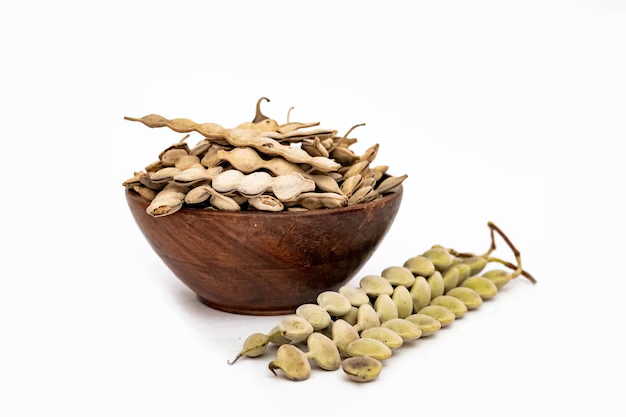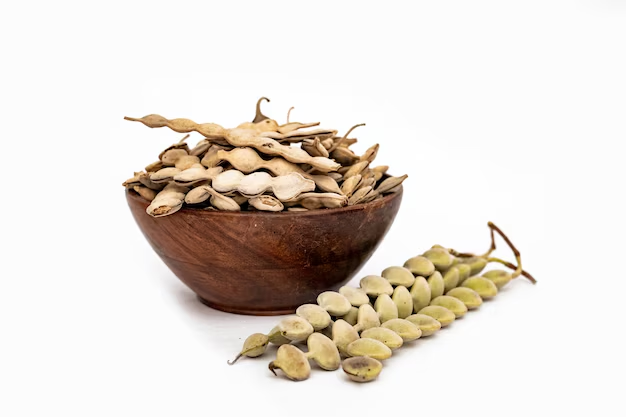INTRODUCTION:
Sweet Thorn (Phalli Babool), scientifically known as Acacia karroo (or Vachellia karroo), is a small to medium-sized, fast-growing deciduous tree belonging to the family Fabaceae. It is native to southern Africa but is also found in arid and semi-arid regions of South Asia, including Pakistan and India. The tree is well adapted to dry climates and poor soils, making it valuable for land rehabilitation and soil conservation. It has a spreading crown, paired white thorns, and feathery bipinnate leaves. The bright yellow, fragrant, ball-shaped flowers attract bees, making it an excellent source of nectar for honey production.

English: Sweet Thorn, Karroo Thorn
Urdu: Phalli Babool (پھلی ببول), Kikar
Hindi: Babool, Kikar Phali
Afrikaans: Soetdoring
Zulu: Umunga
Xhosa: Umnga
Setswana (Botswana): Mosu
Shona (Zimbabwe): Muninga
Swahili: Mgunga tamu
Arabic: Talh, Samr (طلح / سمر)
French: Acacia doux
Spanish: Acacia dulce
HEALTH BENEFITS:

Oral health:
It strengthens gums and teeth, and can be used to help with conditions like plaque and gingivitis.
Joint health:
Its anti-inflammatory and analgesic properties can help relieve joint and muscle pain. It may also help improve bone density.
Digestive health:
The high fiber content can support regular bowel movements. It may also help with diarrhea and loose motions.
Wound healing:
Its antibacterial and anti-inflammatory properties aid in faster wound and injury healing.
Respiratory health:
It can help soothe sore throats, relieve congestion, and ease breathing by helping to clear sputum.
Immune support:
Rich in antioxidants, it helps neutralize free radicals and can strengthen the immune system.
Skin and hair:
It can help with skin infections and improve skin texture. It is also used as a hair rinse for a healthy scalp.
Menstrual health:
It is traditionally used to help relieve menstrual pain and regulate cycles.
Cardiovascular health:
Some sources suggest it may help with heart health by lowering blood pressure and reducing stress.
SIDE EFFECTS:
Constipation:

Due to its astringent properties, Babool is not recommended for people who suffer from constipation.
Respiratory disorders:
People with respiratory problems like asthma should consult a doctor before use.
Diabetes:
Babool can affect blood sugar levels. Diabetics should closely monitor their sugar levels and adjust medication under a doctor’s supervision.
Heart and kidney problems:
Individuals with heart or kidney conditions should seek medical advice before using Babool, as it may interact with their medications or have diuretic effects.
HOW TO USE:
For Joint Pain
Powder: Mix 1–2 teaspoons of the powder with warm water or milk and drink it once or twice daily.

Paste: Mix the powder with warm water to create a paste and apply it to the painful joints.
For Oral Health
Tooth Powder: Use the powder with a little salt and mustard oil to brush your teeth and gums.
Mouthwash: Mix the powder with warm water and use it to gargle.
For Digestion
Drink: Mix ½ teaspoon of the powder in a glass of warm water and drink it once or twice daily.
For Skin Issues
Mask: Mix the powder with rose water or honey to make a paste and apply it to the affected area.
PRECAUTIONS:
Pregnant and breastfeeding women:
It is not recommended for pregnant or breastfeeding women to use babool phali without consulting a doctor, as there is insufficient safety data. Some sources suggest it could potentially cause uterine contractions or reduce breast milk flow.
Individuals with certain health conditions:
People with diabetes, heart conditions, kidney problems, low blood pressure, or constipation should consult a doctor before use. It may lower blood sugar and blood pressure levels.
People with allergies:
Individuals with known allergies to babool or other plants from the Acacia species should avoid it to prevent allergic reactions. A patch test is recommended before topical application to check for skin sensitivities.
Patients scheduled for surgery:
It is advised to stop using babool phali at least two weeks before any scheduled surgery, as it may affect blood pressure and blood sugar levels.




